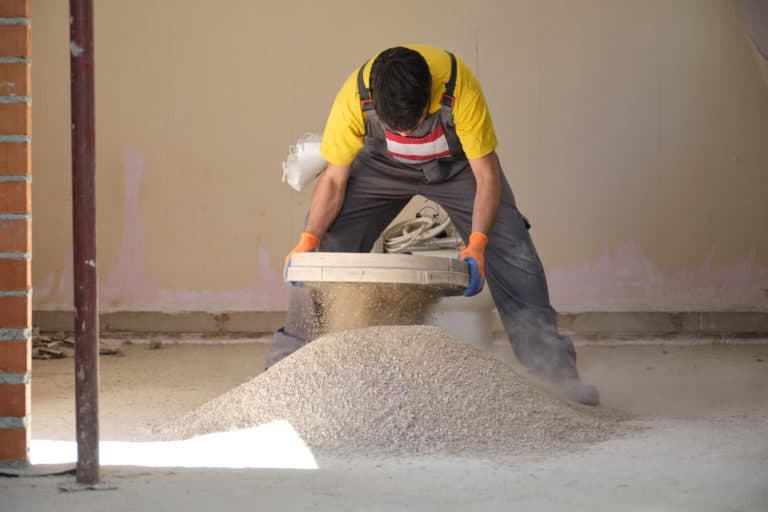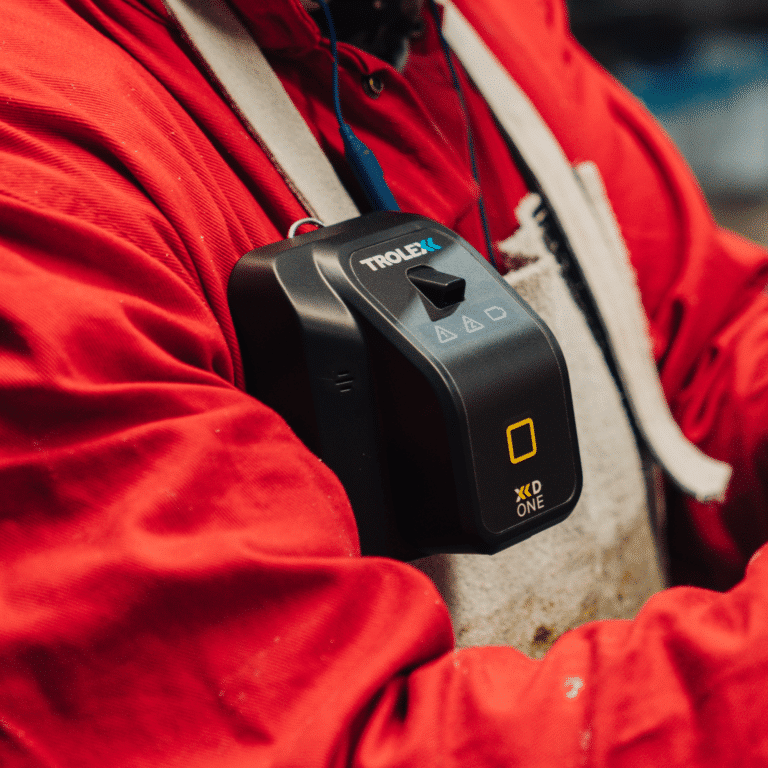A manufacturer of prestigious natural stone, Burlington Stone have quarried for over 200 years across the English Lake District, extracting and crafting a diverse range of signature British natural slate and stone products.
Individuals across their workforce are often exposed to hazardous substances, most notably airborne dust, including silica dust. Burlington Stone trialed two XD1+ devices on their site for a month to see how real-time, personal dust monitoring would improve their safety processes.
After the trial, we spoke to Health and Safety Manager, Peter Walker, about the success of the trial and some of the major benefits which Burlington Stone’s workforce found deploying XD1+ Personal Dust Monitor units in their day-to-day processes.
The IOSH Construction Group Committee Construction Dust Survey makes for sobering reading. Firstly, it highlights the fact that much more needs to be done to increase awareness of the dangers of dust from an employees perspective:
“Dust causes a lower level of concern among employees than the more immediately noticeable dangers of construction, such as falls…they do not perceive it as a significant immediate risk to their wellbeing unlike falls from height, equipment etc.”
It also highlights a lack of awareness from the industry as a whole. Of 618 health and safety professional respondents, ‘44.6 percent thought that the industry gave little or no priority to the issue, and a similar proportion (42.4 percent) felt that it received the same priority as other health issues.’
And even when awareness exists, the report found that compliance is weak.
‘54.0 percent of respondents indicated that workers sometimes fail to follow prescribed methods of work. Over a third of respondents (36.2 percent) indicated that this happened most or all of the time.’
So what’s going on? Why, even when employers and their onsite teams are in possession of the facts, do they too often choose to ignore the dangers posed by dust?
Dangers that lead to 10 deaths a week from lung cancer caused by silica dust, let alone the other illness and premature death from other cancers, silicosis, asthma and chronic obstructive pulmonary disorder (COPD).
You’ll be familiar with the concept of cognitive dissonance, ‘the state of discomfort felt when two or more modes of thought contradict each other’.
Like knowing smoking is bad for you, but continuing to smoke.
Like, “we know dust is dangerous but there’s no convenient, low-cost alternative to handling the risk. So we’ll stick with what we’ve always done.”

Barriers to change
There’s a lot to learn in the Construction Dust Survey.
More than anything, it’s highlighted that despite being increasingly aware of the dangers, people aren’t taking action.
Somehow, industry has convinced itself that the culture and adoption of, the management of, and the cost, complication and general hassle of creating a safe working environment is more trouble than just leaving things be.
Here are just some of the barriers to change noted in the survey:
Culture: The culture of the industry, and its ‘traditional’ view of dust as an expected or normal part of construction work, can be a significant barrier.
Use: Workers often view the controls as cumbersome, impractical, affected by poor maintenance or giving rise to other risks. This deters use.
Employees: Implementing controls effectively depends on good management and supervision. Operators generally choose not to use controls.
Management arrangements: In general, the industry does not seem to manage dust control issues adequately. Comments refer to a link between the management priority given to this issue and the corresponding conditions found on-site.
Cost: Dust control is often viewed as labour-intensive, expensive, time-consuming and a nuisance that slows work.
‘The industry creates this risk. It now needs to acknowledge it, own it and deal with it.’
It somehow seems that as awareness increases, industry seems to think a cultural shift towards safer working environments will run its own natural course over time.
“It is like wearing a hi-vis 15 years ago or hard hats. It took years for the culture to change.” says a contributor to the report.
Fortunately, we’ve taken a far more proactive approach.
What if we could fast track that safer working environment?
What if that cognitive dissonance could be eased instantly and increased awareness could be achieved overnight? And what if you only ever had to use dust control methods when you actually needed them?
It’s hard to not be aware of something when an alarm is screaming in your ears and bright lights are flashing.
Well, here’s the thing.
A low-cost, simple-to-use, personal alarm would help solve the problem overnight.
All those adoption and implementation objections, all the excuses and all those barriers to change would evaporate. Instantly.
And here’s another thing.
That low-cost, simple-to-use, personal alarm exists.
It’s new and it’s here.
The XD ONE Portable Dust Monitor.
Get in touch today and we’ll tell you everything you need to know about how real-time dust and silica monitoring technology can protect your workers from the threat of preventable disease.
